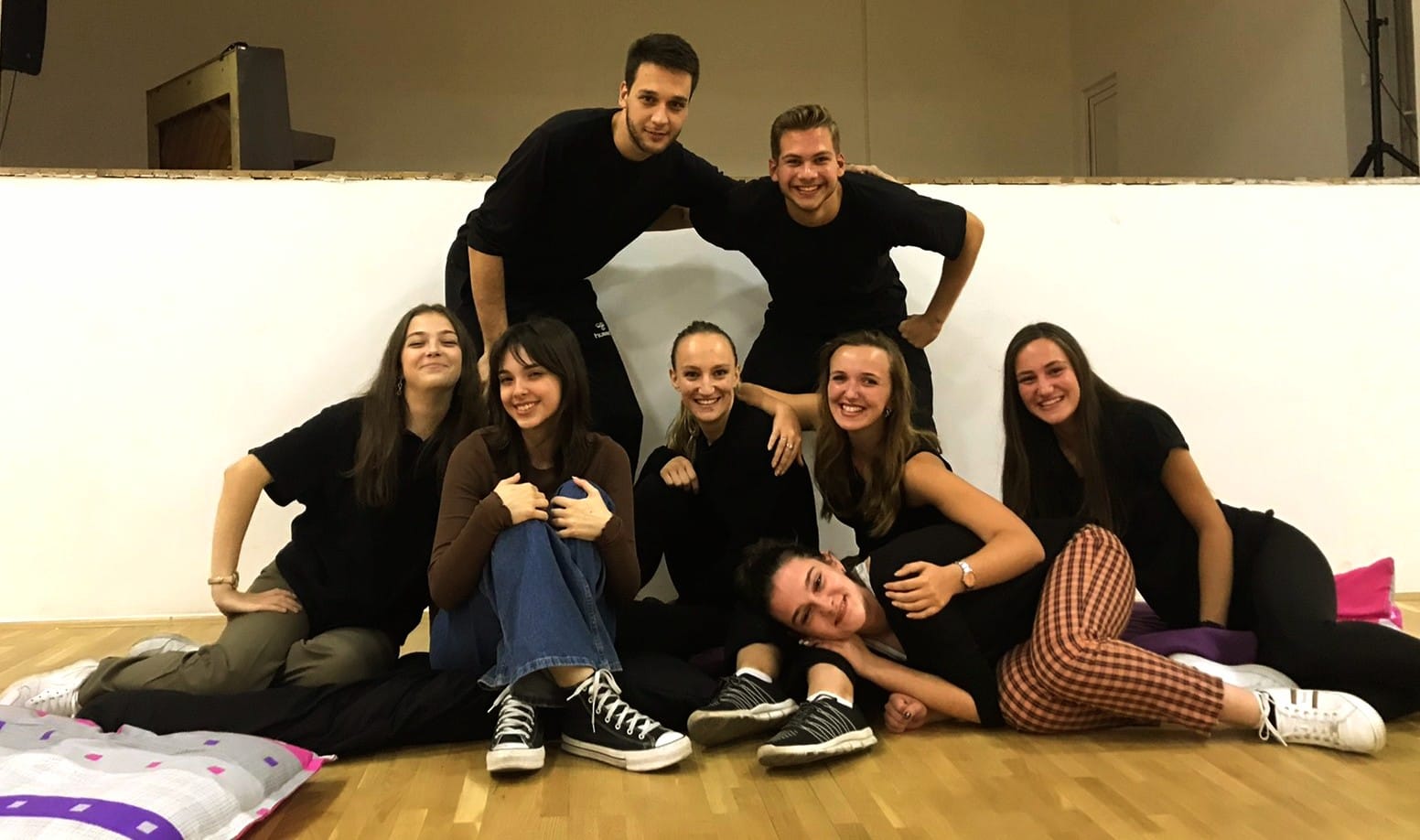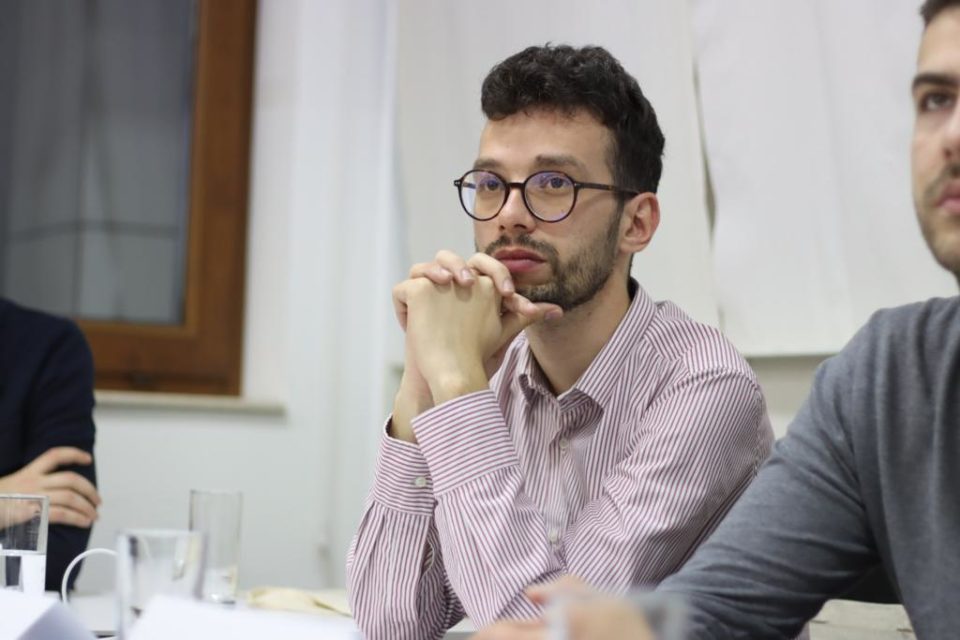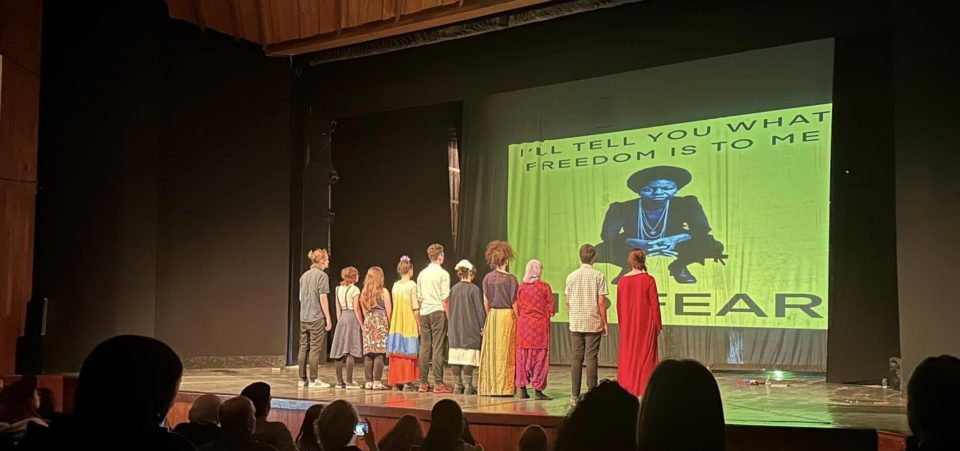
Three years ago, actress Lana Delić’s idea of establishing an Art Room in Zenica came to life. This Art Room brings together young people interested in acting, giving them a platform to develop their acting skills. The school also fosters creative awareness and the celebration of the diversity and originality of each individual.
The idea of founding the Art Room was conceived about a decade ago when actress Delić had begun to study the ʻnew ageʼ young person grappling with contemporary issues and largely influenced by technology. Once she felt she had a solid grasp of the issue, she found a suitable space, developed a program, and opened the Art Room.
“Acting school represents a vital part of the local artistic scene in Zenica, providing young talents with the opportunity to develop their skills and create art that reflects the spirit of the city,” said Adis Kriko, cultural studies scholar and collaborator at the Art Room.
Zenica as a city in Central Bosnia has a specific identity shaped by various influences, from traditional to modern cultural trends. In addition to the Children’s and Youth Scene of the Bosnian National Theater in Zenica, the Art Room is only the second acting school in this city that provides young people with practical knowledge and experience in this art form.
“The Art Room not only provides a space for artistic expression but also serves as a center for promoting cultural diversity and inclusion in Zenica. Through activities and programs, it enables young people from all socio-cultural backgrounds to express themselves and develop their talents,” said Kriko.

So far, the Art Room has organized events and performances that promote dialogue, understanding, diversity, contributing to the creation of a more open and inclusive cultural scene in the city. This has made it an important player in the community-building process, a fact which Kriko emphasizes. This has ensured that Zenica remained a city where everyone can find their place and express their identity.
“Through intensive training and mentorship, the acting school not only shapes future actors but also encourages creative processes and critical thinking among its participants,” Kriko highlighted.
Merima Medžić, a graduate musician and cello professor, explained how the Room’s blending of music with acting deeply influences the development of its students. “Through active participation in music and acting activities, young people develop key skills such as confidence, self-awareness, and self-critique. Performing in concerts and plays gives them the opportunity to express their emotions and ideas in a creative way, contributing to their emotional and social development,” said Medžić.
Acting for All Ages
The Art Room has three acting groups: the first for ages eight to 13, the second for ages 13 to 17, and the third for ages 17 to 25.
Almir Nakić (22) is the oldest member of the Art Room’s acting group. His motivation for enrolling in acting school was his love for the art and the desire to learn something new. “In the Art Room, I discovered that acting is something completely different from what I had imagined before,” said Nakić, explaining that over the course of two years, he learned how to approach dramatic texts, build his character, and how many elements go into the process of producing a play.
In addition to acting and working on productions, he adds that “everyone somehow overcame stage fright, and what we learned in the Art Room can be applied in many other aspects of our lives.”
Lana Delić, the founder of the Art Room and also an actress at the Bosnian National Theater Zenica, explains that all prejudices and preconceived notions about acting are quickly dispelled within the first month of attending the school. She emphasizes that acting is a serious endeavor that requires dedication and study. “To engage in this wonderful profession, you need to be ready to open up, delve into yourself, accept yourself, and understand that flaws do not exist; we decide whether something becomes an active part of our character or not.”

The entire program of the middle and older age groups is based on the program of the Academy of Performing Arts in Sarajevo, which Delić attended. She highlighted the fact that among the instructors at the Art Room are numerous successful actors, directors, producers, and dancers who, as guest lecturers, impart their knowledge to the students.
The Birth of an Actor
She explained that working on preparing a play is indeed a complex task, especially for the youngest children who develop their cognitive abilities through the Art Room and also build their acting spirit. For the youngest group, the program is simpler, but the focus is on developing imagination, play, individual and group work, speech exercises, overcoming stage fright, all through play.
“In creating an actor’s persona, voice, speech, movement, dance play a significant role,” emphasized Delić.
Working on preparing a role, as student Almir Nakić explains, is often exhausting but certainly motivating. “There’s a lot of discussion about the character with our director, a lot of conversations with colleagues, directions, then rehearsals, and so on in circles until we unlock what we need,” said Nakić. In the school’s latest play, he will perform the role of Don Juan, whom Nakić considers the most challenging character he has had the opportunity to portray so far.

Nakić adds that he and his colleagues are all on stage together and depend on each other.
As the end of the school year approaches, Lana Delić acknowledges last year’s successes through productions such as Another Hour, The Rebels, and The Chosen Ones. Members of the Art Room also participated in the international art project, Reflection in the Water, which saw performances from professional actors, dancers, and singers from Italy, France, and Bosnia and Herzegovina.
In June, the Room premiered its first documentary film, as well as two new plays. Delić added that they are anticipating auditions for new members in September and potential guest performances at festivals in Bosnia and Herzegovina and Serbia.
What remains striking is how the Art Room represents an important component in the development of actresses and actors, providing them not only with technical skills and stage wisdom but also the ability to explore and express the complexity of the human experience through art. The impact of this acting school extends far beyond the stage, touching the lives of audiences and communities, inspiring them to see the world from new perspectives.






